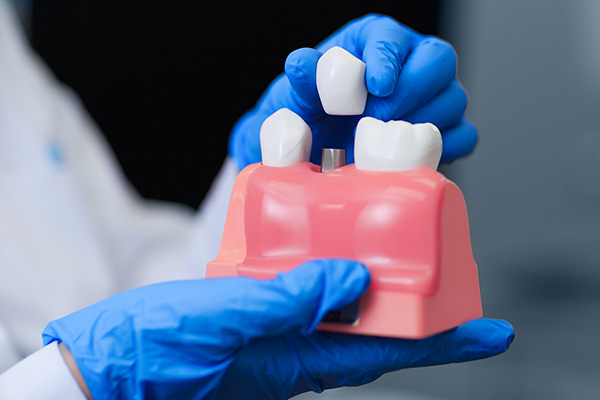How Often Should I Schedule a Teeth Cleaning With My General Dentist?

Visiting a general dentist for routine cleanings is essential for preventing common dental problems such as tooth decay or gum disease. While brushing and flossing every day can help remove a majority of bacteria and plaque from the teeth, it is impossible to completely remove all buildup. Frequently scheduling dental cleanings makes it possible to address tartar buildup before it causes damage and gives the dentist an opportunity to examine the mouth for any issues that need to be addressed.
Scheduling routine cleanings with a general dentist
How often a patient should visit a dentist for a dental cleaning depends on the condition of the patient’s mouth and the presence of any bad oral habits, such as smoking or teeth grinding. In general, the average patient with healthy gums should schedule a cleaning at least twice a year. An easy way to create a habit of maintaining a strict cleaning schedule is to set an appointment for six months in the future after every visit. For patients who smoke, suffer from diabetes or have a history of periodontal disease, the dentist may recommend more frequent visits as a preventative measure.
Knowing what to expect during a cleaning
For some patients, dental phobia or general anxiety about visiting the dentist can keep them from making a cleaning appointment. Knowing what to expect during a cleaning can help ease these anxieties.
Dental cleaning tools
There are several basic tools dentists and hygienists use to clean and examine the mouth:
- Dental mirror: A handheld mirror is used to help the dentist view hard-to-reach places from many different angles.
- Scaler: Scalers are instruments with hooked ends used to scrape away calculus on the teeth, especially above the gum line
- Explorers and probes: Similar in appearance to scalers, explorers and probes are used to look for cavities and measure gum recession.
- Suction devices: A low-suction saliva ejector is used to remove excess saliva and water during the cleaning process.
- Air and water syringe: Using a handle on a long, thin nozzle, the syringe is used to spray a stream of water onto debris in the mouth or to blow air on teeth to quickly dry them.
- Polisher with prophy cup: A special paste is applied to a rotating dental polisher with an attached prophy cup to polish each individual tooth.
Pain and bleeding
It is not uncommon for patients to experience some level of bleeding after a cleaning, especially if the patient does not frequently floss or there is a lot of buildup on the teeth. Cleanings by a general dentist can cause gum sensitivity that lasts for a couple of days following the appointment. While having teeth cleaned should not cause excessive pain, trauma to the mouth, decay or jaw disorders can make patients uncomfortable during the process.
Conclusion
Visiting a general dentist at least twice a year can limit the amount of dental work a patient needs by preventing dental decay and gum disease from progressing. If it has been a while since you have visited the dentist, make an appointment right away to ensure no problems have developed.
Request an appointment here: https://www.smilebeautification.com or call Rolando Cibischino D.M.D. at (201) 204-1355 for an appointment in our Hackensack office.
Check out what others are saying about our services on Yelp: Read our Yelp reviews.
Recent Posts
There are several dental implant options for replacing missing teeth. A dental implant permanently replaces a missing tooth, saving smiles and helping people eat their favorite foods for years to come. Unlike other options for replacing missing teeth, dental implants do not require regular check-ups from a dentist.The three most common types of dental implants…
Within the past few decades, advances in dentistry have resulted in many options for replacing missing teeth. While all of these options help restore functionality and appearance to a person’s mouth, they also differ in several ways. Depending on a patient’s dental history and lifestyle, one replacement option may be better suited for them than…
If you are missing several teeth or all of your upper or lower teeth or even all the teeth in your mouth, you may be wondering, “What are my options for replacing missing teeth?” Full or partial dentures may be a good option for you. In this article, we’ll discuss what makes a good candidate…
Missing teeth can result from many different things; regardless of how you lost your teeth, there are options for replacing missing teeth. There may be a stigma around dental care breaking the bank, but these options all have their pros and cons, which you should take into consideration.One option many consider is doing nothing. While…


